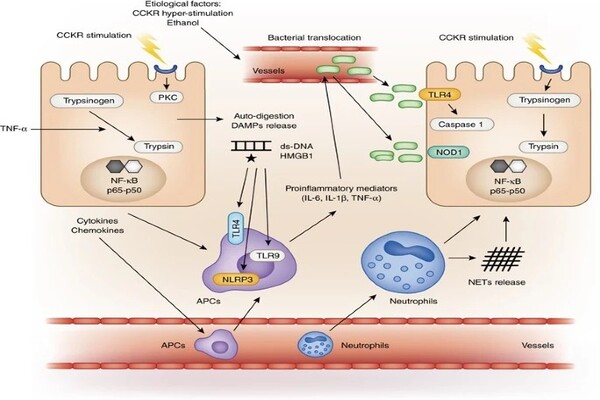University of Cologne researchers discovered a way to preserve pancreatic β-cells, which produce insulin, against inflammatory cell death. The study examined how receptor-interacting protein kinase 1 (RIPK1) regulates β-cell survival.
Typically, this protein regulates cell fate by balancing life and death signals in response to inflammatory cytokines such as tumor necrosis factor. Dr. Nieves Peltzer’s team at the Center for Molecular Medicine Cologne (CMMC) discovered that RIPK1 is not required for β-cell survival in either normal or diabetic settings.
The authors suggest that the exceptionally high levels of the protective molecule cFLIP expressed by β-cells might be responsible for protecting them from the RIPK1 checkpoint. The study ‘RIPK1 is dispensable for cell death regulation in β-cells during hyperglycemia’ was published in Molecular Metabolism.
Our findings suggest that pancreatic β-cells possess a distinct protective mechanism against TNF-induced cytotoxicity, reliant on cFLIP but not on RIPK1. This could lead to novel strategies for preserving β-cell function in diabetic patients.
Dr. Nieves Peltzer
Using a mouse model, researchers found that β-cells have high levels of the anti-apoptotic protein cFLIP, which prevents cell death, and low levels of apoptotic (caspase-8) and necroptotic (RIPK3) proteins, which promote cell death. This provides a protective shield against inflammatory TNF-induced cell death. The antibiotic cycloheximide, which lowers cFLIP levels, made pancreatic islets more susceptible to TNF-induced cell death, emphasizing the importance of protein expression and cFLIP levels in this protective mechanism.
“Our findings suggest that pancreatic β-cells possess a distinct protective mechanism against TNF-induced cytotoxicity, reliant on cFLIP but not on RIPK1. This could lead to novel strategies for preserving β-cell function in diabetic patients,” said Peltzer.

These results challenge the dominant paradigm that RIPK1 is universally required for cell death regulation across all cell types. Instead, pancreatic β-cells appear to be uniquely able to resist inflammatory death signalling — a discovery that breaks new grounds for diabetes research.
Önay Veli, first author of the study, added: “We were amazed by the remarkable resistance of β-cells to TNF-induced cell death. We found that β-cells express elevated levels of pro-survival proteins compared to pro-death proteins, which helps us to better understand their resistance mechanism.”
In the future, it would be important to explore in details the mechanism by which cFLIP regulate β-cell survival during diabetes, with a focus on therapeutic options to protect β-cells from immune attack or glucotoxicity. In addition, future research may lead to the discovery of strategies to improve β-cell viability during transplantation.
















